|
Center for Community Wealth Building plays a part in Colorado’s rapidly growing cooperative ecosystem. We align our work with many other ecosystem partners—including nonprofits, anchor institutions, government agencies, and existing cooperatives—in order to raise incomes and improve working conditions for cooperative members.
In addition to collaborating with ecosystem partners, we're continuing our popular education work to expand who has access to cooperative economics. Our training increases the number of BIPOC co-op educators and supports emerging trainers to practice and share the cooperative model with their communities. Read more to learn how this robust ecosystem is forming. Building with Co-op Ecosystem Partners
At the heart of any small business ecosystem are people and systems that put energy into helping small businesses to grow The Democracy at Work Institute defines 11 elements that are unique to a cooperative ecosystem:
In Denver, one important ecosystem partner is the Denver Foundation, which has supported worker cooperatives for many years. Their Strengthening Neighborhood grants provide much needed seed funding ($2,500-$5,000) to help with operational expenses before cooperatives launch. This year, CCWB supported four groups in completing this grant, which allowed them to buy equipment, receive industry training and contract with lawyers. We have also had multiple partners in co-op education. First, we hosted the second-annual Summer Institute "Decidimos el Futuro" with GES Coalition and Project Voyce, a daylong bilingual, all-ages training focused on tenants rights, community owned real estate, worker cooperative skills and arts & culture. We also partnered with the Aurora South Metro SBDC in hosting two courses over six months for more than 40 Spanish-speaking childcare workers, helping them to form worker cooperatives. Finally, we could not complete our mission without the support of the ecosystem partners of the City and State. With funds from Denver Economic Development & Opportunity, we offered free cooperative development technical assistance to Denver businesses. We have also supported multiple small businesses as they evaluate their employee ownership options or navigate the resources from OEDIT’s Office of Employee Ownership. Consistently Developing Cooperatives Businesses (and more on the way!)
We have worked with more than 20 groups this year, but three emerging cooperatives are very close to completing their legal agreements. We have offered responsive technical assistance, facilitation, and commitment to ensure these three businesses successfully launch:
We're also actively developing three childcare cooperatives in Greeley, North Denver-Thornton, and Aurora. As a support structure for home-based childcare providers, who often work alone, these co-ops will support Colorado families who need childcare and empower workers who seek to earn higher income—a double win. Strengthening Our Cooperative Education
Our Train the Trainer program is the key program we use to expand cooperative education. This annual training equips individuals with valuable skills, empowers them to bring cooperative models back to their communities, and trains others to reclaim historically rooted practices of mutual aid and self help as twin forces for economic mobility. Notably, Train the Trainer allows individuals to take on new leadership roles and foster the growth of the cooperative movement in their communities.
For example, two of our staff cooperative developers were former cohort participants and now lead CCWB’s training. This year, 16 trainers completed the 28-hour course, and we are expanding to two cohorts next year, one in Denver and one in San Luis Valley, to support their food cooperative enterprises. Through a steering committee and active listening sessions, our trainers themselves actively shape the program's curriculum each year, allowing us to adapt this training to community needs. Want to be part of the ecosystem?
We are committed to nurturing a dynamic cooperative ecosystem. Would you like to grow with us? Join an upcoming cooperative training opportunities on our events page or connect with a cooperative developer to begin the process of building a co-op in your neighborhood or community.
Democratic decision-making (DDM) is a powerful tool for advancing diversity, equity, and inclusion (DEI) goals within businesses and nonprofits. As a worker-led, anti-racist organization, Center for Community Wealth Building uses DDM to guide our organizational strategy, and we want to share what we’ve learned so that others can consider it part of their toolbox. What is DDM and How Do We Use It? Our democratic decision-making (DDM) process started with our staff members deliberating on who makes decisions and how decisions are made. While time-consuming, this process set the stage for growth spurts in organizational development, member inclusion, employee engagement and satisfaction, and long-term organizational success. Although we’ve been making decisions democratically for years, CCWB has spent several months developing a decision-making matrix. A matrix creates clarity on how decisions are made. Because we are a nonprofit, we identified our decision-makers as our board, staff, teams, managers, executive director, and the community we serve. If you do this for a business, your decision-makers might be different. If your organization is unlikely to embrace democratic decision-making, you could create a decision-making matrix just for your team. Here’s a behind-the-scenes glimpse into our process: While the discussion occurred over three sessions (and several smaller meetings), we completed our matrix and are so proud of how it will help us make decisions moving forward.
We have learned that DDM helps advance our DEI goals in these ways: 1. Increasing and facilitating diverse representation The process facilitates equal representation and communication of diverse voices from different backgrounds, experiences, and perspectives. Our staff members had to voice their thoughts, co-create the process, and vote on each decision. 2. Giving a space for constructive dialogue without fear The process has opened an inclusive dialogue about the future of our organization and how we want to relate to each other. Although it felt messy during DDM discussions and debates, every staff member was encouraged to express their opinions freely without fear of retribution. Individuals shared their unique perspectives, which is crucial for uncovering blind spots and leading to more well-rounded and equitable decisions. Despite engaging in disagreements and debates, our time together left us feeling energized and supported by one another. 3. Protects checks and balances among stakeholders The DDM process inherently includes mechanisms for checks and balances. At CCWB, several layers of stakeholders act as checks on one another, ensuring that power is distributed and not concentrated in the hands of a select few. We even include the public - our program participants who challenge us and give us feedback after every engagement. Then, we have staff members, management, the executive director, and our board, who all have decision-making power according to our matrix. 4. Outwardly engages accountability to the community As said above, we involve the public in our decision-making. Our programming is highly influenced and informed by the people we serve. On a smaller level, after each program offering, we reach out to participants (in Spanish and English) and ask for feedback. Going through a DDM process allowed us to identify new places where community might weigh in on more significant levels—including our program strategies and elements of our budget. We don’t just take feedback; we require it in our decision-making. 5. Increasing Transparency, Accountability, and Psychological Safety for Staff We also appreciate that this is a transparent process. No one was left out. We understood the process and answered questions as they came up. We came up with the process as a team. Decisions are made through processes that are open to scrutiny, ensuring accountability. This transparency is critical for identifying and rectifying discrimination or bias. It also helps build trust among diverse communities, as they can see that decision-makers are held accountable for their actions. Conclusion At CCWB, we are an anti-racist and inclusive organization; we recognize that society as a whole has trended toward hierarchy and top-down structures, so we see these practices as a way to shift our internal culture, to align with others who are practicing anti-oppression, and to live into our values. Democratic decision-making is one of our most potent tools for incorporating diverse perspectives, promoting inclusive dialogue, establishing checks and balances, and encouraging community engagement. Please consider using it and contact any of our staff to learn more.  This month our co-op team is excited to feature You Be You Early Learning, a mobile preschool and teacher-led cooperative that is part of the larger cooperative network Cooperative EDU. They recently were honored by the Aurora-South Metro SBDC with the Equity, Diversity and Inclusion award. Through a partnership with Aurora Housing Authority, You Be You serves 3-5-year-old students in two different marginalized community housing developments. They have 4 teachers who serve 16 children. We spoke to Roya Brown to learn more about her innovative business model. As an educational entity, you chose to operate as a nonprofit, something the schools and university of Mondragón also chose. What does it mean to identify also as a teacher-led cooperative? As a teacher-led cooperative we believe in horizontal leadership and celebrate the diversity of experience and perspectives of our team. You be You Early Learning (YbY) embraces a cooperative governance model that values teachers as professionals and includes the voices of all stakeholders in decision-making. The stakeholders are parents, students, teachers, and staff; everyone will have their voice heard and valued. We believe there are alternatives that transfer the power of decision-making from individuals (i.e. Principals or Administrators) or a small group of people to teachers and stakeholders. This educational environment will dismantle unnecessary hierarchy and political agendas allowing for student, parent, and organizational needs to be met immediately through local and relevant feedback. Although, a cooperative is for a profit entity, education is not; therefore, we follow all the principles of cooperative except for the for-profit portion. A nonprofit is a top-down structure, and it is very challenging to fit a cooperative model within a nonprofit structure What is your vision for a wider network of teacher-led schools? What progress have you made so far? Many more people are becoming interested in alternative governance models, but only a handful of examples exist in the US educational system. We are here to support and collaborate with everyone interested in joining this movement and working to establish more examples of thriving schools and empowered educator teams. Under the additional structure of Cooperative EDU, we have formalized a larger official cooperative that will support educators from all sectors to be the best they can be. Cooperative EDU has created an Educational Professional Practice (EPP) to grow a professional collaborative network in support of teachers as the primary contributors to learning success. The EPP encourages the cooperative spirit in educators by sharing in planning, actions, and results to leverage community cultural wealth, promote social-emotional growth, and celebrate students’ uniqueness. We are collectively committed to creating a movement in education that enables the spread of more humanizing, innovative, and learner-centered environments that are rooted in principles of diversity, equity, inclusion, belonging, and social justice. We currently have a small collective of vanguard educational institutions contributing to a robust and innovative holistic professional development program and are developing our capacity to be a shared services provider for organizational, administrative, and human resources needs of schools and educators committed to creating impactful democratic learning communities. We really envision a regional mutual support network for educators that works across all sectors to enable systemic change. What do you wish other worker cooperatives understood about your model? We have been in a unique position as a cooperatively run organization that is not run for profit but rather as a social service. There is not yet a specific legal category for such organizations, so although YbY is not officially a cooperative on paper, we are very much a cooperative at heart. Our model has pushed many boundaries, and we have few peers that are both educators and cooperatives or cooperative and nonprofits. How do you practice Principle 6, cooperation among cooperatives? We will try and work with other cooperatives as much as possible (ie. banking, construction, grocery stores) and are constantly working to create a robust conversation around cooperative governance and the realities of working together in this way. We are all collectively trailblazing best practice for horizontal leadership in many different sectors and we are happy to contribute what we are learning in our growth. Khary's Catering, one of the 11 caterers that went through Feeding Anchors, stands as a team at Eat.Local.Food. October 24, 2023. Denver, CO – October 23, 2023 – Denver's Center for Community Wealth Building (CCWB) is leading a pioneering initiative to bridge the racial wealth gap by forging partnerships between local and minority-owned food businesses and large institutions. On Tuesday, October 24, CCWB, in cooperation with the Aurora-South Metro SBDC, will host Eat.Local.Food. at the National Western Center, featuring 11 outstanding diverse, local caterers for a food-tasting event that will welcome over 200 institutional buyers from some of the largest institutions in Colorado. The purpose of Eat.Local.Food. is to introduce diverse, local caterers to potential new customers committed to leveraging their everyday purchasing to foster economic prosperity and inclusivity in the Denver metropolitan area. "Our place-based institutions have a significant economic engine that can be leveraged to strengthen our local businesses. CCWB connects local, diverse small businesses to these institutions to build mutually beneficial relationships." "Our place-based institutions have a significant economic engine that can be leveraged to strengthen our local businesses. CCWB is connecting local, diverse small businesses to these institutions to build mutually beneficial relationships," said Yessica Holguin, executive director at CCWB. "By opening doors for local and minority-owned food businesses and helping institutions make purchasing decisions that align with their commitment to diversity, equity, and inclusion, we are driving positive change in Denver's economic landscape." The event is sponsored by the Colorado Health Foundation, National Western Center, CSU Spur, The SSA Group, Zing Credit Union, Kaiser Permanente, and Denver Economic Development & Opportunity (DEDO). Eat.Local.Food is a Win-Win-Win (Businesses, Economy, Community)This initiative boosts local and minority-owned businesses and promotes economic prosperity for underserved communities. It allows institutions to significantly impact these entrepreneurs’ journey, support economic growth, and help create a more equitable and diverse business landscape. The Feeding Anchors program and Eat.Local.Food. celebration is a testament to the power of collaboration, and it has already shown promising results. CCWB’s institutional partners are committed to leveraging their everyday business decisions to create positive change that benefits the community. Catering businesses that have been through the program can see dramatic improvements in their business, such as Taste the Love Cooking, which, after many years in business, reached 2023 revenue goals early and has several new catering relationships with institutional companies. For more information about CCWB's Feeding Anchors program and its efforts to support local and minority-owned food businesses, please visit https://www.communitywealthbuilding.org/feedling-anchors.html.
|
AuthorDiana Aqra, Archives
April 2024
Categories
All
|








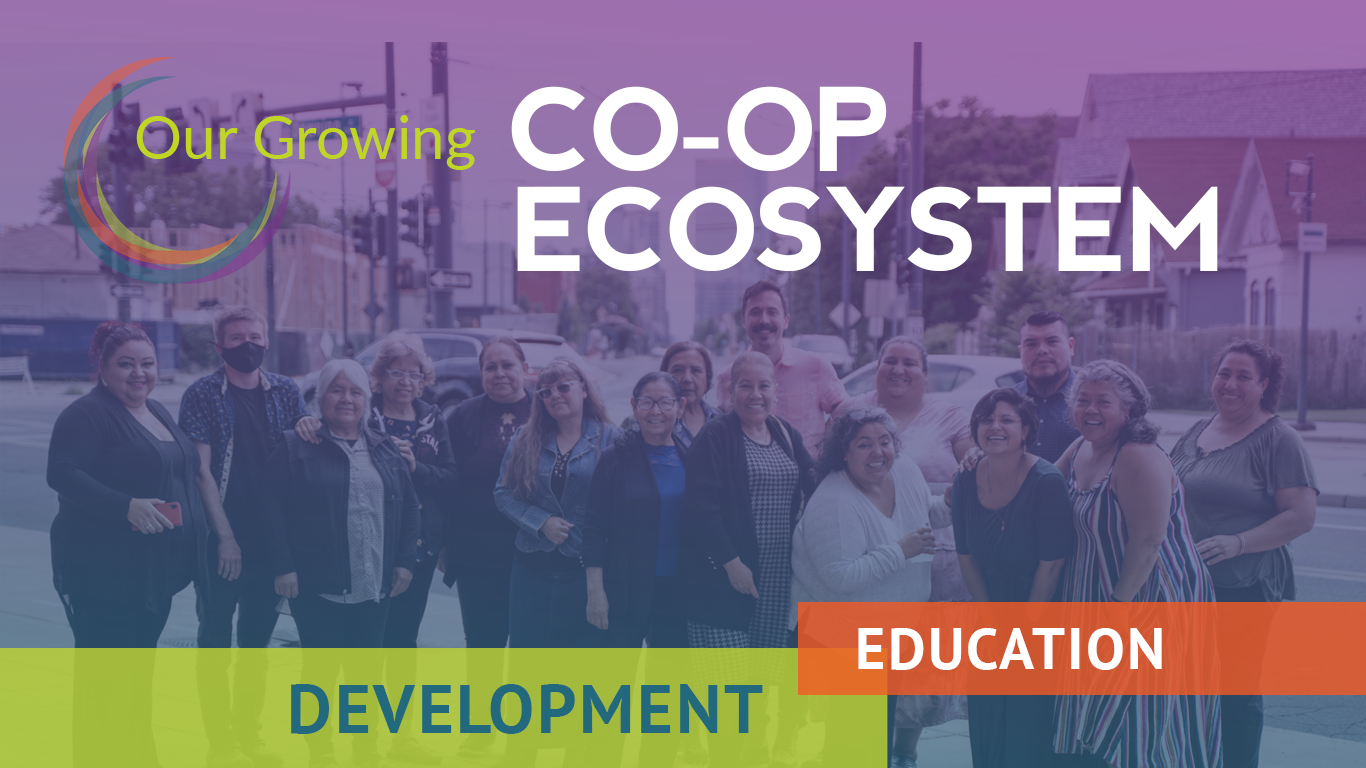
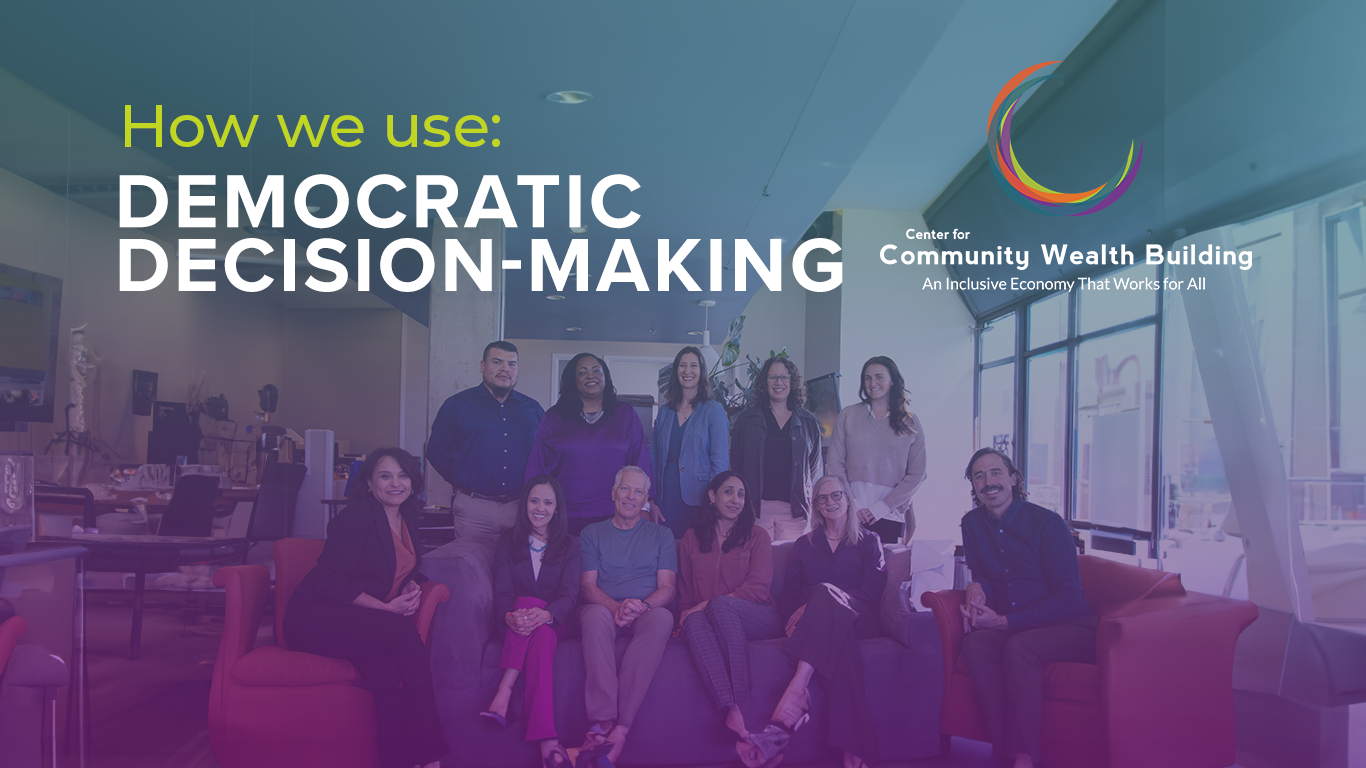
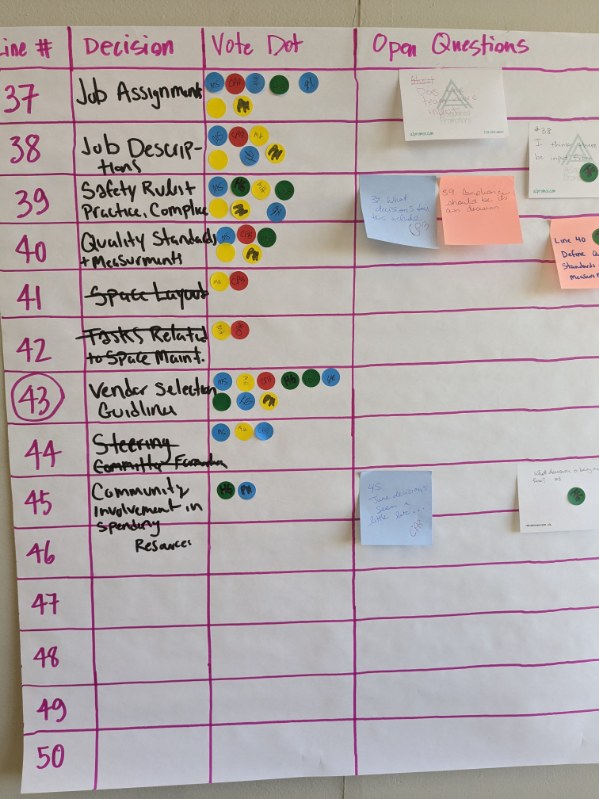
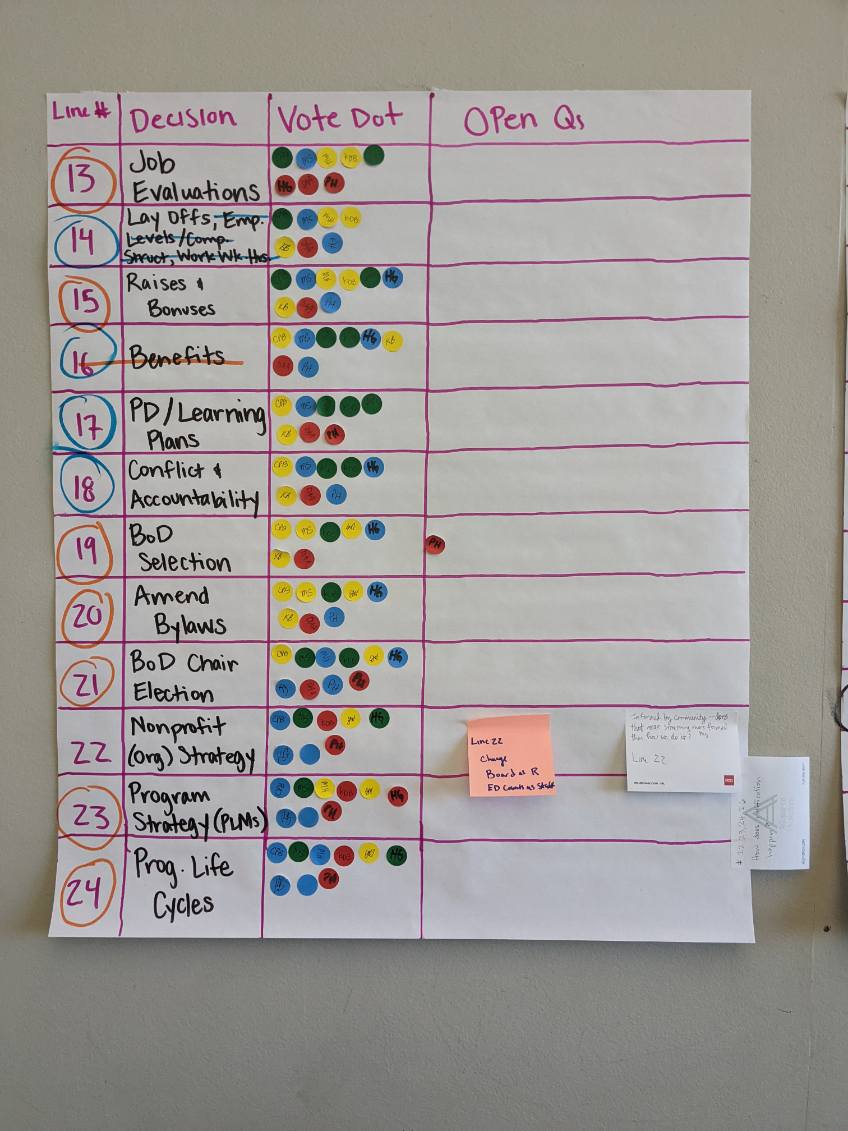
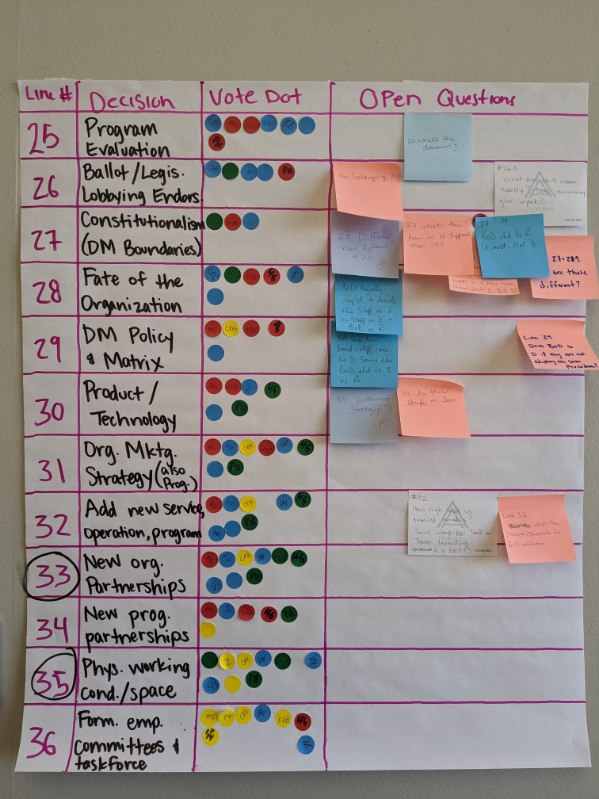
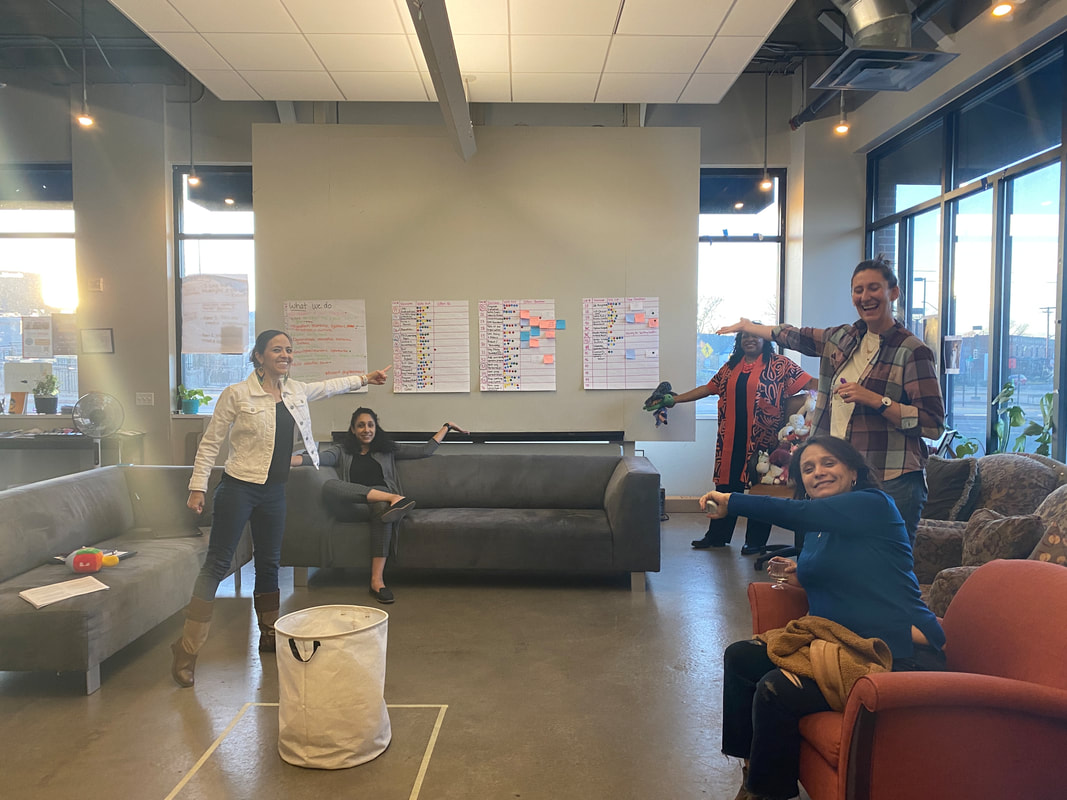
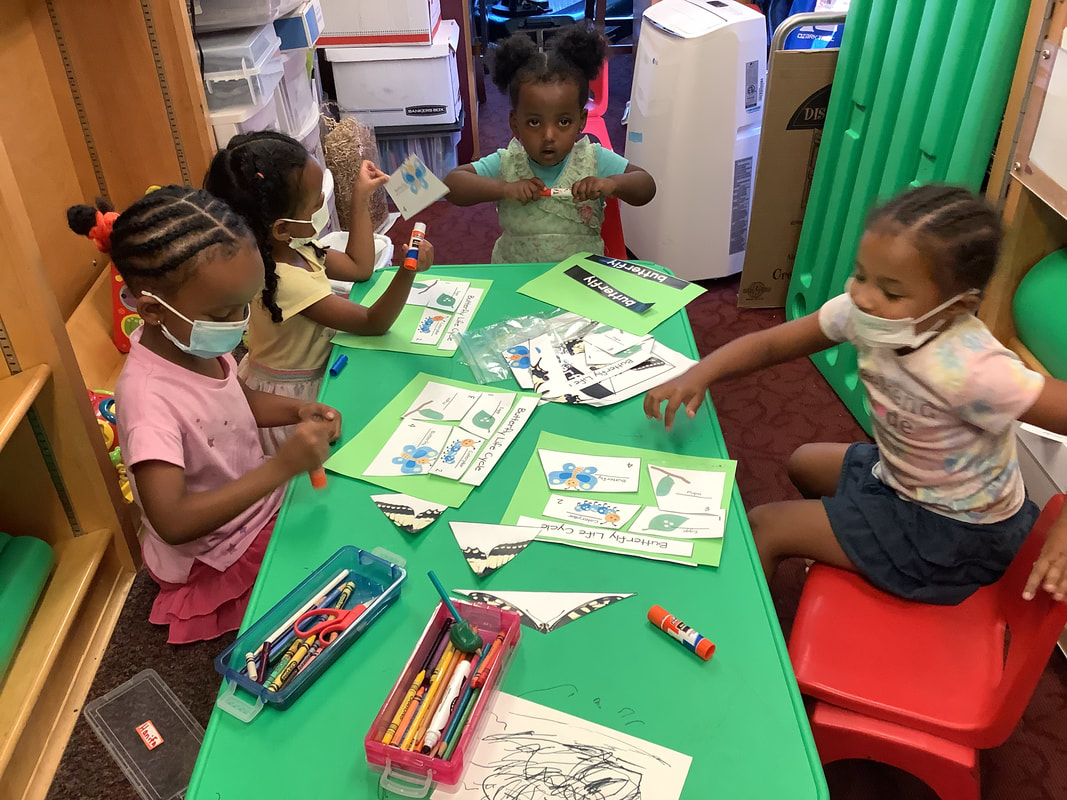



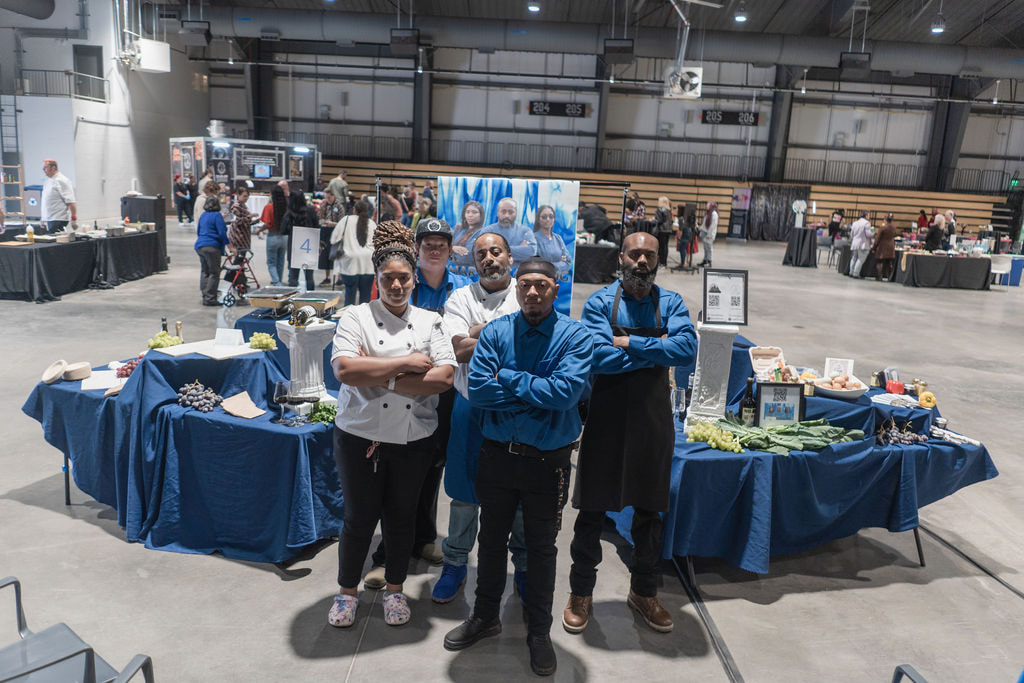

 RSS Feed
RSS Feed